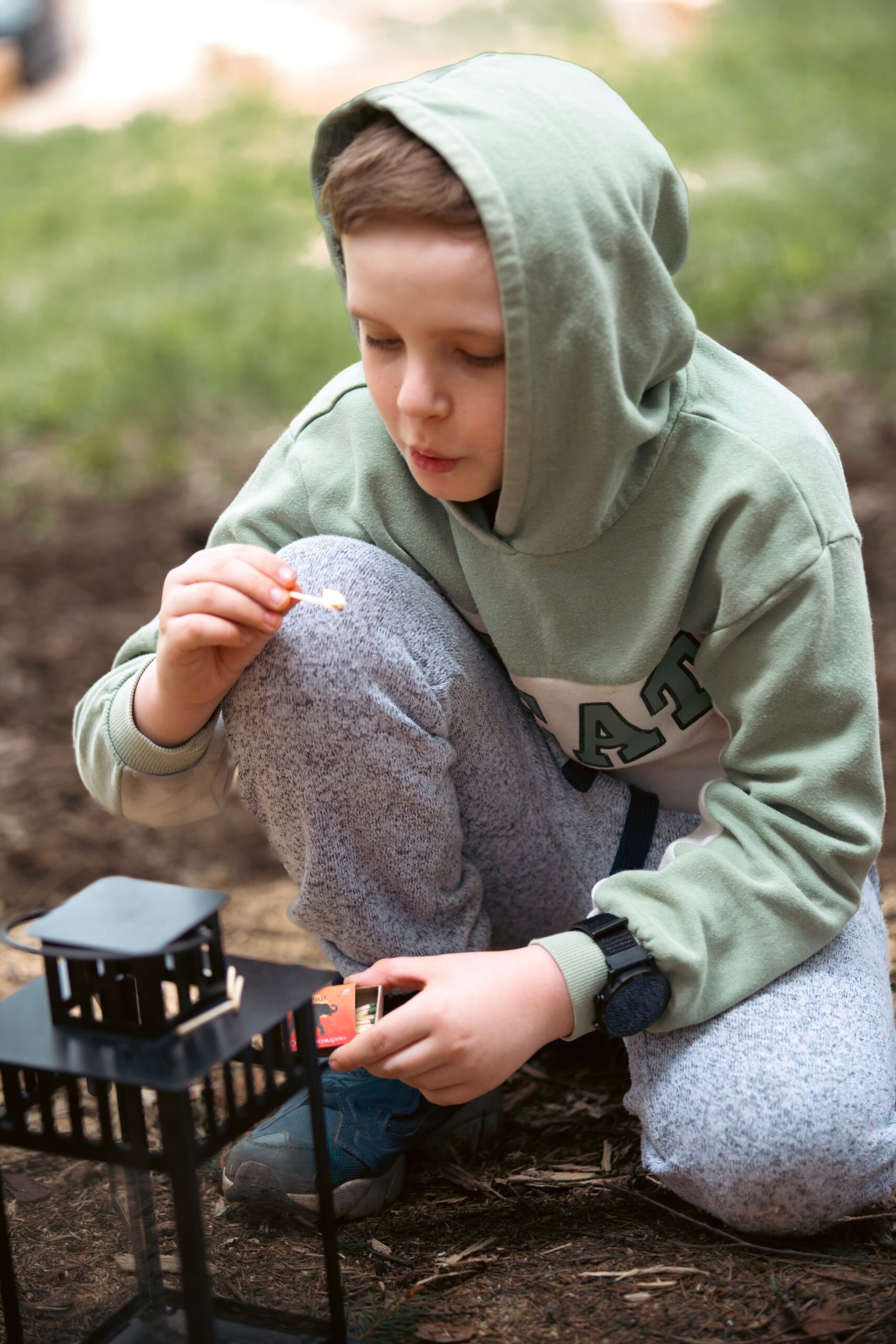 What’s the difference between imposing a consequence and a natural consequence?
What’s the difference between imposing a consequence and a natural consequence?
This is a question that comes up a lot and can be one of the more tricky concepts for many parents to grasp. So bear with me while I attempt to bring more clarity.
A parent might say to their child; “if you don’t finish your homework, the natural consequence is that you won’t have the privilege of screen time“. In reality, not allowing the child the screen time they were expecting to be allowed will be experienced as a punishment. There are many reasons why a child may resist homework. Using the approaches that I teach in these articles and through our eCourses helps parent and child get to the heart of the matter and results in the child feeling supported and problems being resolved. Whereas imposing the consequence (punishment) results in the child likely feeling resentful and the parent probably feel conflicted. Next ensues an argument about whether or not it’s fair and all the focus is on whether or not they get on the screen or not. The child will be too stressed to even think constructively about their relationship with their homework.
Imposing consequences is often referred to as “logical consequences” or “natural consequences”, which adds to the confusion
The parent might say to their child “well if you wanted to have screen time, you should have done your homework. Losing your privilege is the natural consequence, you chose this.” How confusing is this for the child, they’re being told that losing screen time was their “choice” yet it was what the parent decided.
You might also like to read The consequence of imposing consequences
What natural consequences look like
The natural consequence of the child not doing their homework might be that the teacher has a conversation with them about it, or that they regret having not finished it when they get to school. Or they might be disappointed or frustrated to be at a different stage of a certain project than the other children. As you can see from the first example, the imposed consequence is not a natural outcome, it’s an outcome that was very consciously created and put in place by the parent. It is literally a consequence imposed by the parent and not a natural consequence. If a child consistently struggles to do or complete their homework, there may be many underlying reasons.
When a parent takes the approach of exploring the issue with their child, this is more likely to result in the child having the opportunity to share and work through their thoughts and feelings. Kids can feel very torn between what they want to do and what they might need to do and need their parent’s support with these big emotional projects. Sometimes a child is struggling to understand what’s required, sometimes they have a learning difficulty that hasn’t been identified. Sometimes there is just too much on the schedule and they are verging on burn out.
More examples of natural consequences
If a child forgets their lunch box, they may experience the natural consequence of becoming hungry or needing to ask for food. If they grab the toy from the baby and the baby cries, they see their sibling’s upset. If the child goes outside without their jacket, after being asked to bring one, they become wet or cold. That’s a natural consequence. Maybe the child is encouraged to put their toys away before friends come to visit but they refuse to do it or even let their parent help them. Then when the other children arrive, they run into the child’s room, perhaps stepping on and breaking an item. That’s a natural consequence.
The child can clearly see that the consequence created was the direct result of their action or lack of action. At such times, it’s important that the parent responds with empathy trusting that their child will learn from the situation. Children, like adults will of course make mistakes. Children like adults will often make the same mistake a few times, each time intending to do it differently the next time. Holding and understanding that change is a gradual process for humans of all ages will help you to remain supportive, loving and patient. Witnessing this from you will in turn help them maintain kindness and patience for themselves and others. If a parent takes such moments to moralise “well if you’d listened to me when I told you… “, then the stress and disconnection that this leads to can make it more difficult for the child to learn. When kids feel moralised, they often rebel in an attempt to maintain their dignity. Which can really interfere with the natural and intrinsic motivation to learn from stressful situations.
As a natural consequence of eating healthy food, we feel better
When we eat junk food, we don’t feel so good. Instead of criticizing or imposing a consequence when a child eats junk food they weren’t allowed to, open the conversation and explore as I describe in this article. Or maybe you need to work together to set them up for success around responsibilities like chores. When we meditate, we feel calmer, when we stay up too late, we feel tired and frazzled. Ask curiosity-invoking questions that help your child identify how they feel as a result of their choices.
Truly natural consequences are the direct results of our actions, which are much easier for us to learn from than consequences that someone else imposes with the intention of trying to make us learn.
Do imposed consequences effect the parent-child relationship?
Imposed consequences tend to make the child feel criticised, controlled and often judged as opposed to looked after and supported. When a child feels criticised and controlled, it negatively impacts the parent-child bond. It makes it harder for children to truly want to learn from our guidance. When children feel criticised and controlled, it impacts their confidence and dignity, which makes it harder for them to strive to succeed and feel proud of their choices. Imposed consequences feel like a punishment to a child because it is a punishment. Imposing consequences cause a lot of stress to a child.
Do imposed consequences highlight or hide the natural consequences of their actions?
Discipline strategies that cause upsets are not setting children up for success. Children need to feel helped, cared for and supported as they learn from their mistakes. Imposing consequences breaks down the warm caring support and leaves the child with a lot of resentment towards their parent.
Imposed consequences tend to distract the child from the actual natural consequence, hence taking from the learning opportunity.
The child is often entirely consumed with the negative thoughts and emotions that arise after being punished for their mistake. This leaves them with no bandwidth, capacity, or space to consider the natural consequences that would have otherwise been a learning opportunity. Most unhealthy behaviours are the direct result of children experiencing stressful feelings like disconnection, insecurity, frustration, anger, judgment, jealousy, and rejection.
Child’s behaviour results in an action which the child doesn’t like
Sometimes it’s a grey area in that the parent may need to take action that will affect the child because of the child’s behaviour. Perhaps they need to leave a performance because the child is unable to be quiet enough. The parent can frame this as a punishment to the child; “We had to leave because you were so disruptive, why must you make life so difficult for everyone?”. Or, they can frame it as a natural consequence. “We’ve come outside because people around us couldn’t hear the performance because your voice was too loud and you weren’t staying in your seat. We can go back in if you can reassure me that you will sit quietly beside me or on my knee and only whisper. What would help you sit quietly do you think?”
Parents often believe that their child won’t learn or change their way unless their action causes them stress
And indeed, we humans are generally motivated to avoid pain and make changes that increase our happiness. Yet again, this works better when someone helps us identify the consequences of our actions rather than when we feel shamed or punished for our actions.
When a parent tries to motivate their child with fear by threatening to withdraw a “privilege” it generally really distracts the child from focusing on thinking through what might have worked better. The parent perhaps believes that unless there is a consequence, meaning an unpleasant and unwanted outcome for the child, then the child has no motivation to do their chores. The parent may hope that their child will choose to do the agreed chore next time because they fear the outcome of the unpleasant consequence that will be imposed upon them. Yet because the parent is attempting to motivate using fear or shame, then it isn’t a natural consequence and the emotional impact makes it completely different.
There are many motivations to learn, grow and change
For example, gaining the satisfaction of achieving goals or making our environment more pleasant. The more we actively listen and use ‘I statements’ to express our feelings, requests and needs in a non-threatening way, the more we maintain a loving connection even when holding limits or giving feedback – these are powerful ways to support our children to self-reflect, learn and grow and be the best that they can be.
Genevieve Simperingham is a Psychosynthesis Counsellor, a Parenting Instructor and coach, public speaker, human rights advocate, writer and the founder of The Peaceful Parent Institute. Check out her articles, Peaceful Parenting eCourses, forums and one-year Peaceful Parenting Instructor Training through this website or join over 90,000 on her Facebook page The Way of the Peaceful Parent.









My 7 year old grandson is misbehaving in school. The teacher would like home support. Any suggestions on how to support the classrom teacher?
Hi Teresa, every situation is very different of course, with many contributing factors. But generally I recommend that the caregivers (be they the parent or the grandparent) to engage with the teacher in a way that’s really diplomatic and level but also very clear in advocating for the child’s needs. Asking questions instead of expressing assumptions is often a good place to start, express any positives that you can to the teacher both about their teaching and their relationship with the child but also anything the child is enjoying about school, be it in or out of the classroom, it could be the games they play with friends at lunch time. Expressing appreciation, expressing empathy and showing that you’re curious and open minded and willing to work with them to find solutions is often a good approach that helps parent and caregiver find some common ground. Then you can work with the teacher to brainstorm what might work better. Teachers usually respond better if the caregiver is looking for solutions as most teachers come to expect a lot of complaining from parents who are not particularly interested in listening or finding solutions. You can maybe bring in suggestions that you think could help keeping it specific to what your grandchild responds well to, like “what I’ve often noticed about my grandchild is that they tend to be more cooperative when I’m positive and encouraging, or when I take a bit of time to explain my reasoning, or when I talk through with them what’s going to happen and make a plan so they better know what to expect” .. that kind of thing. Does any of this resonate with you at all?